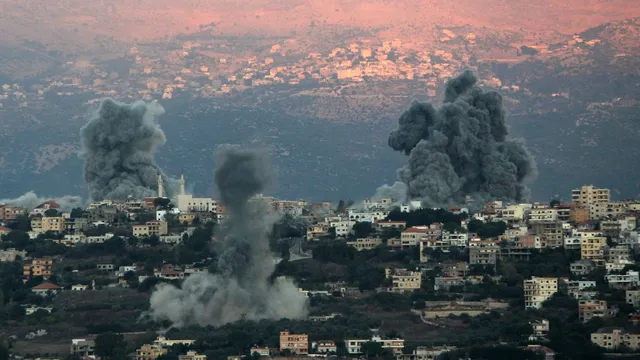
British nationals urged to leave Lebanon amid rising violence
2024-09-30 17:49- The British government has advised its nationals in Lebanon to leave immediately due to escalating violence.
- Following the death of Hezbollah leader Hassan Nasrallah, Israeli forces are conducting operations in Lebanon, raising fears of a broader conflict.
- The situation is critical, and the government is mobilizing resources to assist British citizens in evacuating Lebanon.
Express your sentiment!
Insights
In Lebanon, the situation has become increasingly volatile following the death of Hezbollah leader Hassan Nasrallah in Israeli airstrikes. The British government, led by Foreign Secretary David Lammy, has urged its nationals to leave the country immediately due to the fast-moving circumstances and the potential for escalating violence. Approximately 5,000 British citizens are currently in Lebanon, and the government has mobilized a rapid response unit, stationed 700 troops in Cyprus, and secured commercial flight seats to facilitate their evacuation. Lammy emphasized that the government cannot guarantee safety if the conflict intensifies further. Israeli forces are reportedly conducting operations within Lebanon, indicating a possible ground assault, which has raised concerns about a broader regional conflict. The situation remains precarious, and the British government is taking all necessary measures to assist its citizens in leaving Lebanon as tensions rise in the Middle East.
Contexts
The conflict between Hezbollah and Israel has escalated dramatically, with both sides exchanging fire across the Lebanese-Israeli border since the onset of the war on Gaza last October. Reports from Beirut indicate that the situation has devolved into a full-blown war, particularly following the Israeli airstrike that killed Hezbollah's leader, Hassan Nasrallah, on September 27, 2024. This attack, which targeted residential buildings in Beirut, also claimed the lives of several other Hezbollah commanders, intensifying the already volatile situation in the region. Hezbollah has been engaged in cross-border attacks against Israel since October 8, 2023, aiming to deter Israeli military actions in Gaza, which have resulted in significant civilian casualties. In retaliation, Israel has launched extensive airstrikes on Hezbollah positions in southern Lebanon and the Bekaa Valley, claiming to target the group's military infrastructure. The ongoing violence has led to thousands of injuries and displacements on both sides, with the Lebanese Ministry of Health reporting over 566 deaths, including many civilians. The roots of Hezbollah trace back to the late 1970s, when Shiite communities in Lebanon felt marginalized amid the civil war and the influx of Palestinian refugees. Influenced by Iran's theocratic regime, Hezbollah emerged as a resistance movement against Israeli occupation, gaining military strength and political influence over the decades. By 1992, the group entered Lebanese politics, securing a significant presence in parliament, which has only grown in recent years. As the conflict continues to unfold, the killing of Nasrallah represents a critical blow to Hezbollah, which has long been a formidable force in the region. With Israel poised for a potential ground incursion into Lebanon, the stakes are higher than ever, raising concerns about a broader regional conflict that could further destabilize the Middle East.